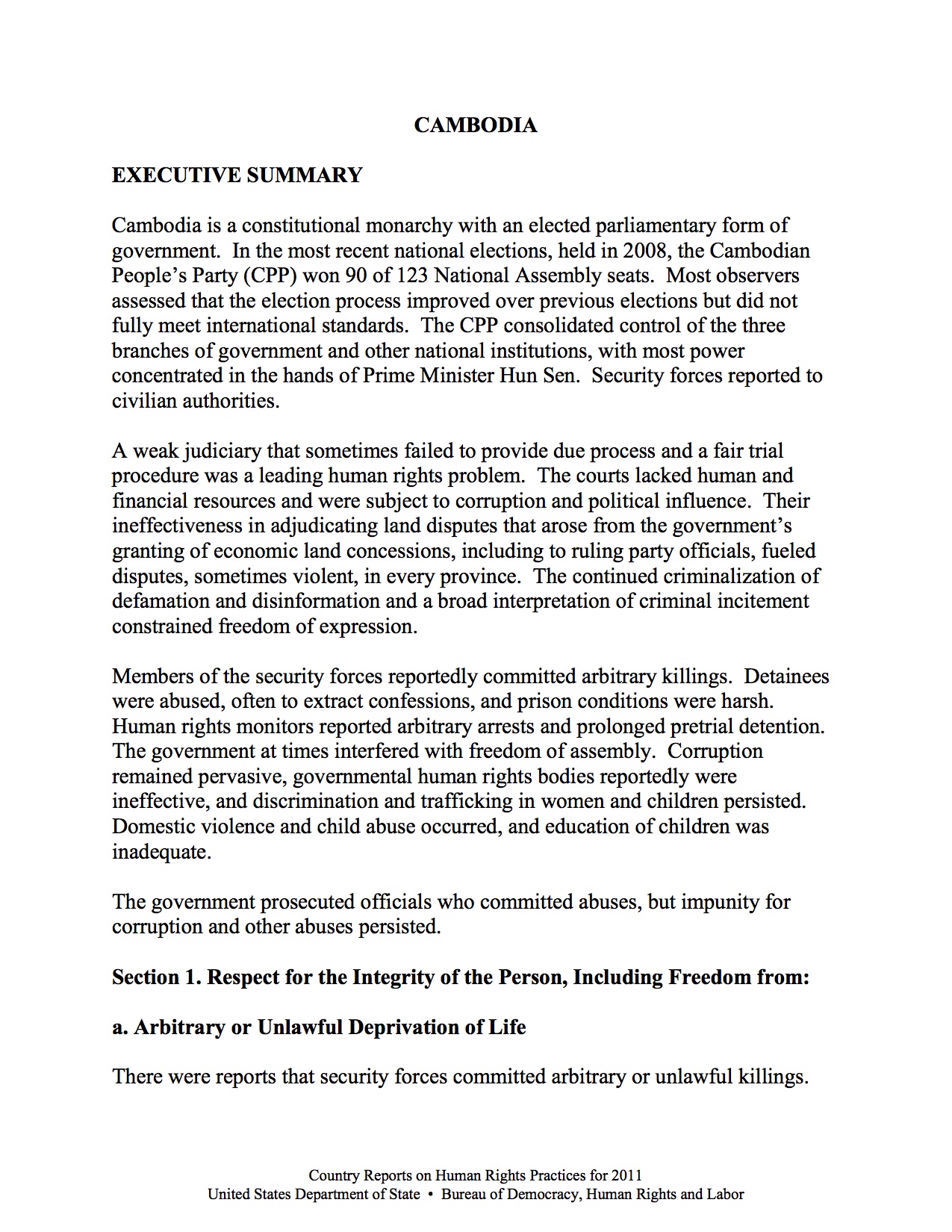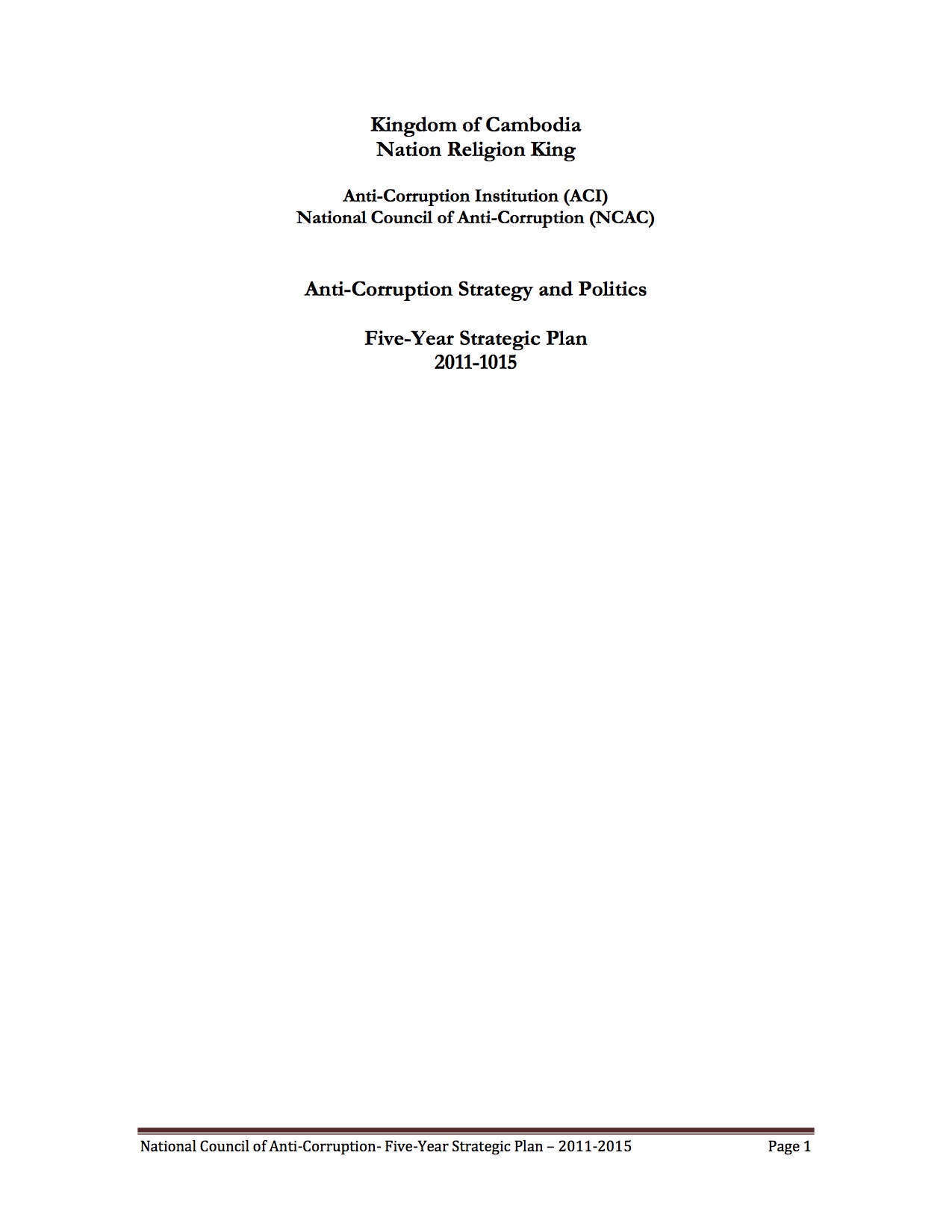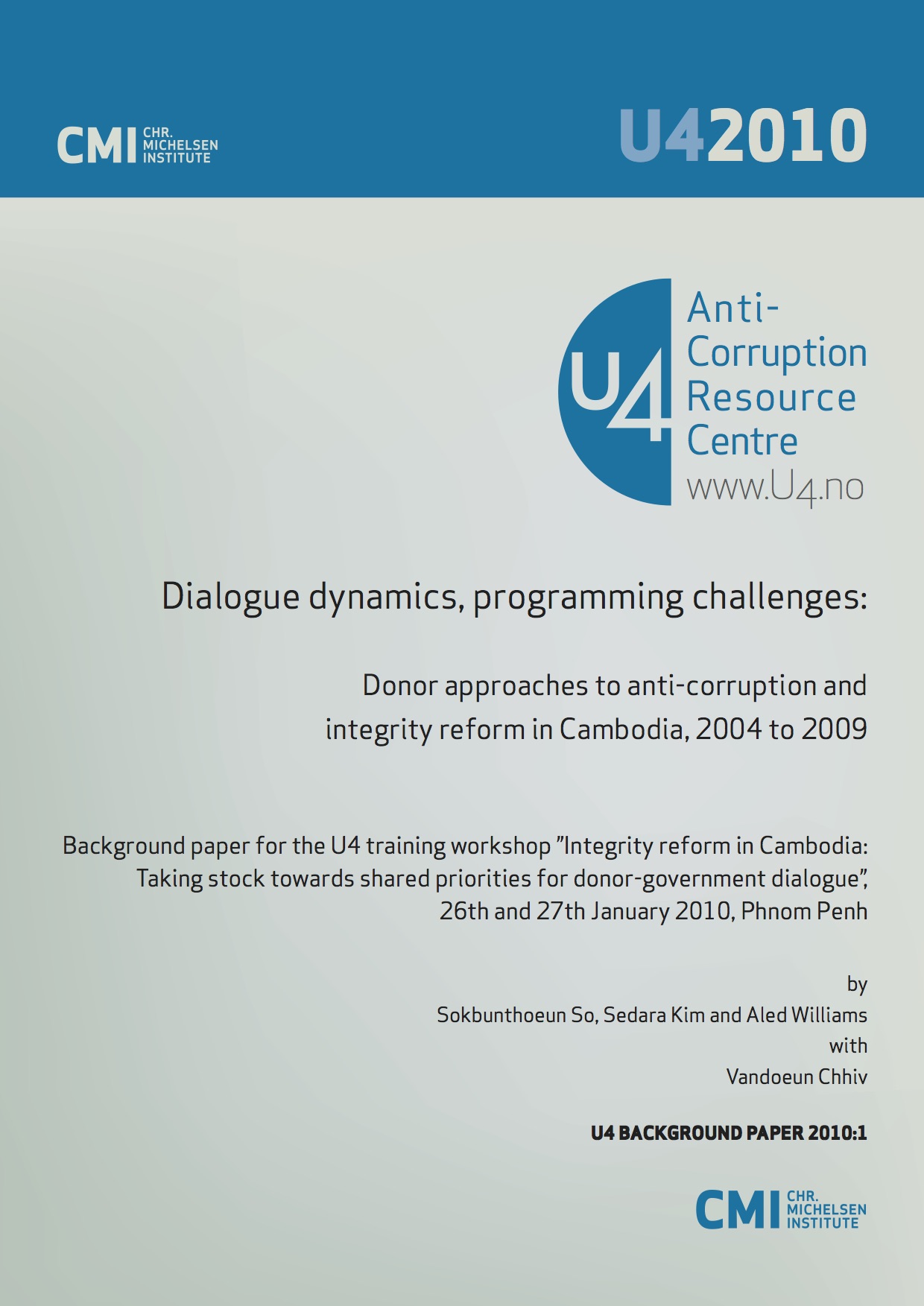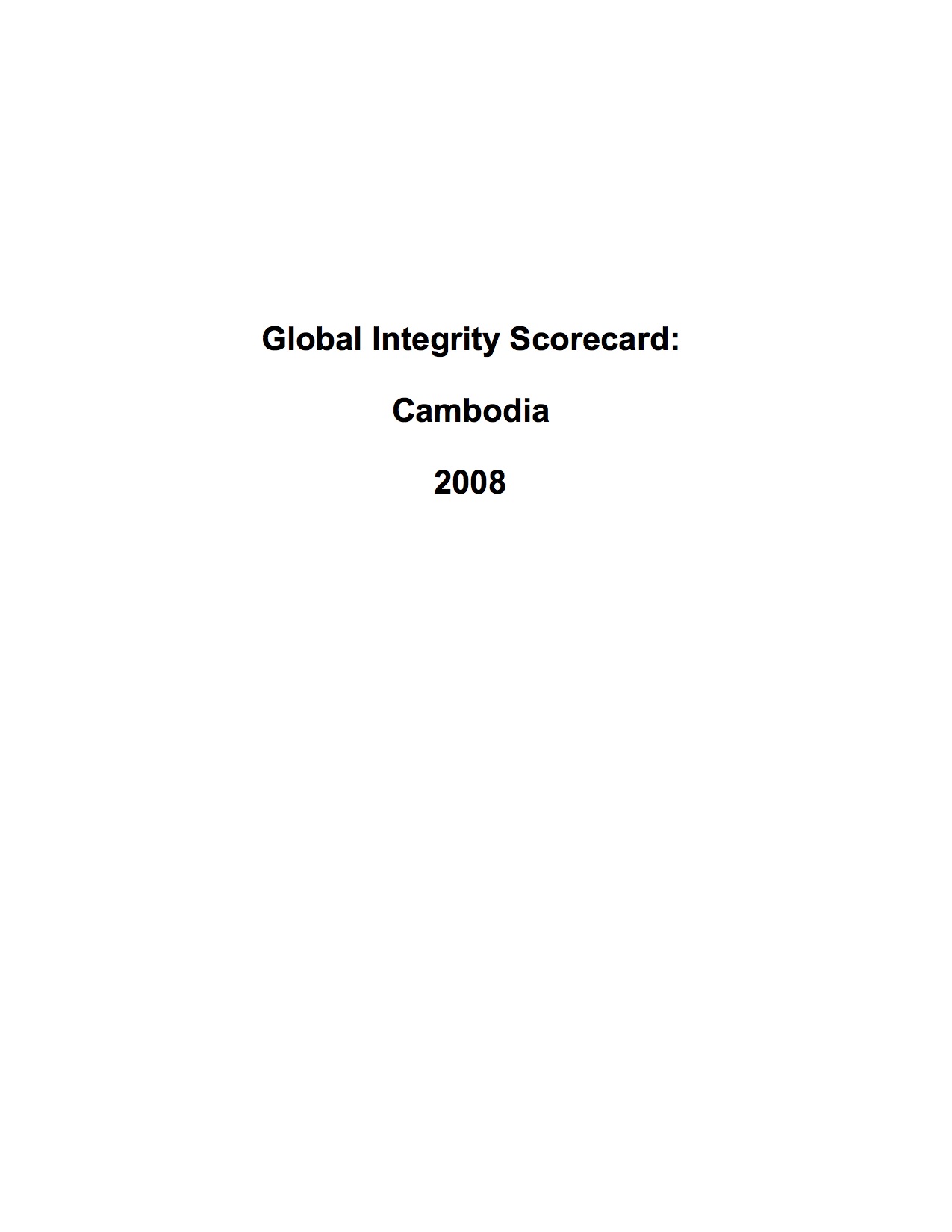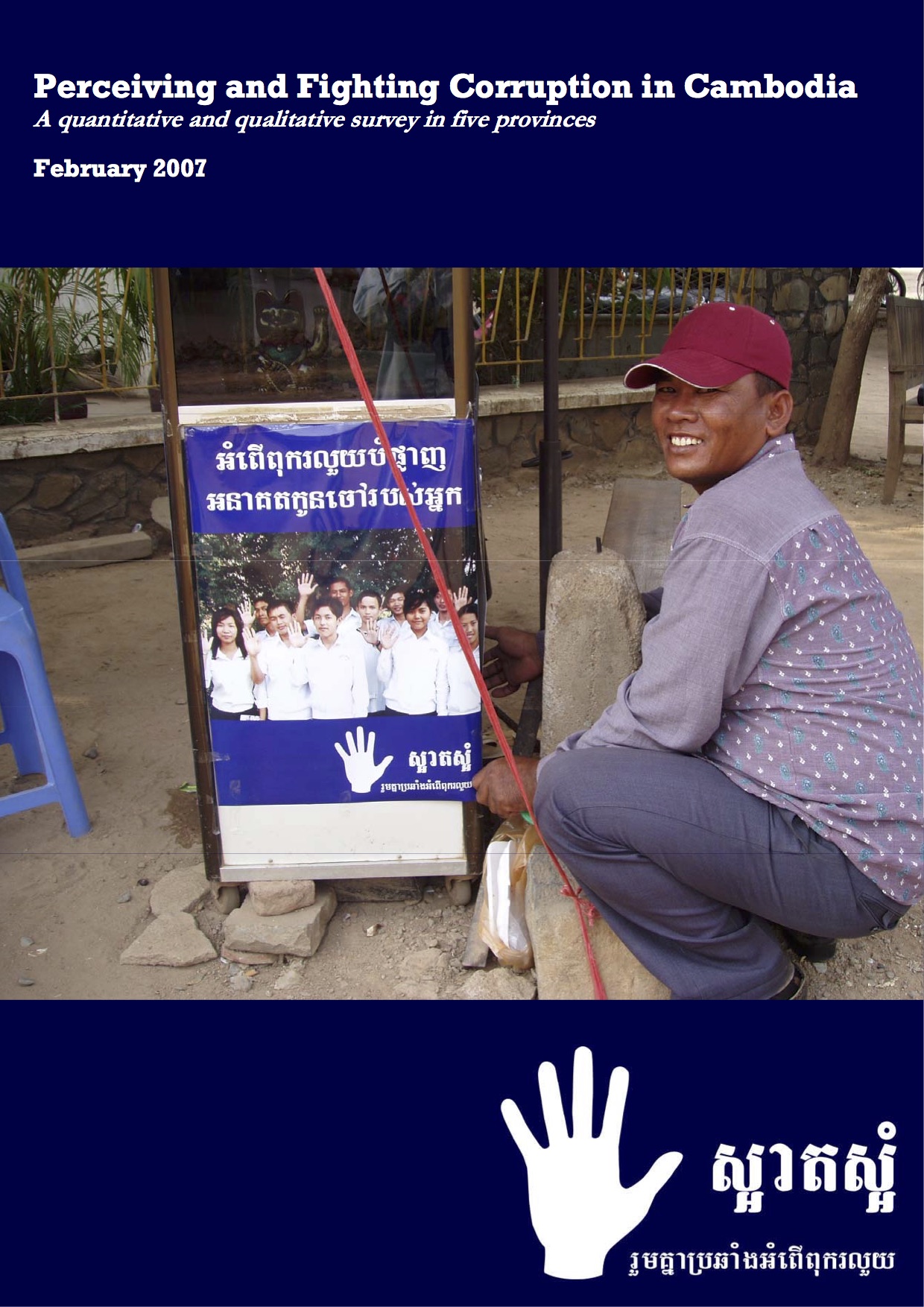Latest Entries
Country Reports on Human Rights Practices for 2011
Publication Year: 2011 / Sources: United States Department of StateCambodia is a constitutional monarchy with an elected parliamentary form of government. In the most recent national elections, held in 2008, the Cambodian People’s Party (CPP) won 90 of 123 National Assembly seats. Most observers assessed that the election process improved over previous elections but did not fully meet international standards. The CPP consolidated control of the three branches of government and other national institutions, with most power concentrated in the hands of Prime Minister Hun Sen. Security forces reported to civilian authorities.
Anti-Corruption Strategy and Politics Five-Year Strategic Plan 2011-1015
Publication Year: 2011-2015 / Sources: National Council of Anti-CorruptionFor the Royal Government of Cambodia (RGC), good governance is the crucial sine qua non to achieve the sustainable and equitable economic development and social justice. Good governance requires dynamic participation and determination from various sectors in the society with accountability, transparency, equity, inclusiveness and the rule of law. The RGC always considers corruption as an obstacle to economic development, rule of law, democracy, social stability; and it is also the cause of poverty.
Dialogue dynamics, programming challenges: Donor approaches to anti-corruption and integrity reform in Cambodia, 2004 to 2009
Publication Year: 2010 / Sources: Chr. Michelsen Institute (CMI)This study aims to provide an overview of donor approaches to reforms related to anti- corruption and integrity in Cambodia over the past five years, from 2004 to 2009. It investigates the manner in which donor agencies have conceived of Cambodia’s governance and corruption challenges, the manner in which they have conducted dialogue on these challenges with government counterparts, and the programmatic means they have adopted to attempt to meet the identified challenges. It also attempts to capture some tentative lessons for future donor dialogue and programming in relation to anti-corruption and integrity reform in the country.
Global Integrity Scorecard: Cambodia 2008
Publication Year: 2008 / Sources: Global IntegrityShortly after the ruling Cambodian People’s Party (CPP) won the July elections by a landslide, a 51-year-old farmer named Cheam Ny stood in protest at the opposition Sam Rainsy Party (SRP) Headquarters. His goal: the end of corruption in Cambodia.
Like many Cambodians that day, he complained that the SRP lost seats in the National Assembly because of rampant election fraud. He cited anecdotal evidence consisting of the names of voters that had allegedly been deleted from rolls, and the falsification of documents allowing unregistered CPP supporters to vote.
To Cheam Ny, the election fraud was part and parcel of a much larger and endemic culture of corruption — a culture that seems unlikely to change without a change in the government itself. “The CPP officials have committed corruption so they can’t eliminate corruption,” argues Ny, who is calling for a reelection to right the wrongs of the past.
Perceiving and Fighting Corruption in Cambodia
Publication Year: 2007 / Sources: CleanThe aim of this study was to describe how Cambodians perceive corruption in their country.

